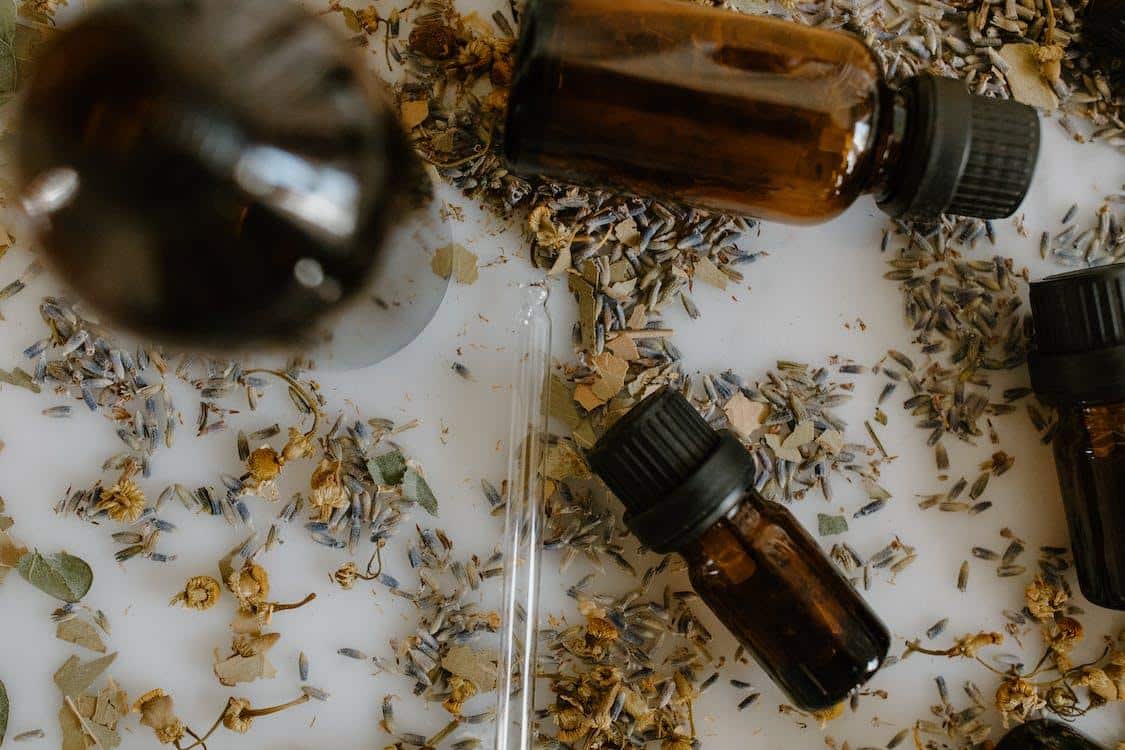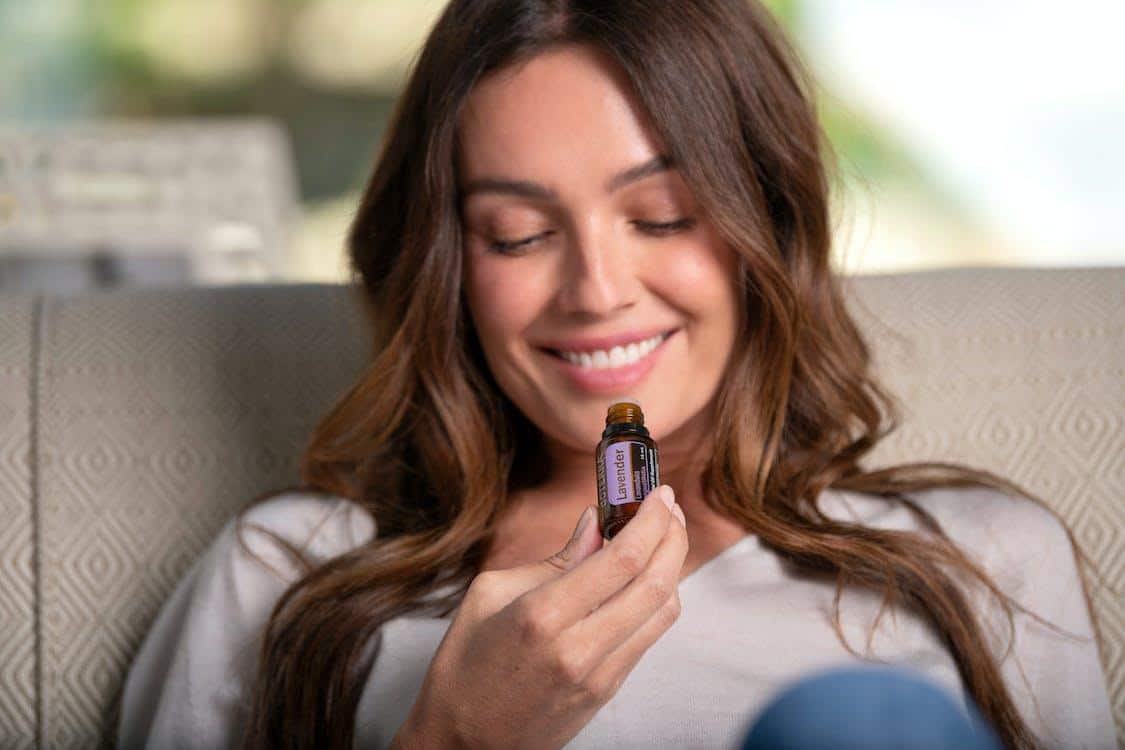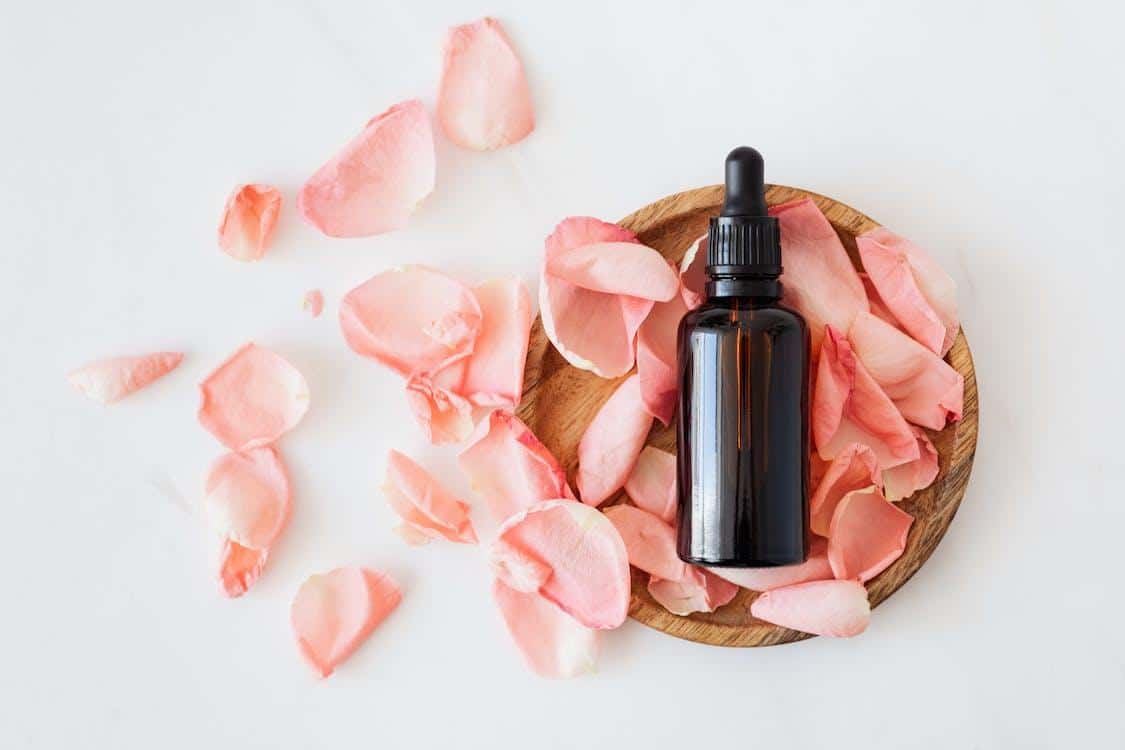The Art of Wellness: Exploring the World of Essential Oils
Derived from plants and renowned for their therapeutic properties, essential oils have been used for mental, spiritual, emotional, and physical well-being for centuries. Whether it’s to improve your mood, get restful sleep, or address your body odor, essential oils can be used for various reasons.
Extracted from the peels, barks, flowers, leaves, and roots of plants, aromatic oils are highly concentrated organic compounds that are obtained through various production methods like cold pressing and steam distillation. Since 4500 BC, Egyptians and Chinese have been using essential oils for making ointments, cosmetics, and healing medications. The botanical oils can be mixed with a carrier oil and applied on the skin, added into a diffuser to be inhaled, blended in household products to sanitize and clean, or consumed orally (only some, not all essential oils).
In this guide, we will explore the world of essential oils, their types, benefits, and various ways to incorporate them into your daily routine for a more vibrant and enriching life. So, fasten your seatbelts as we are about to take you on an unforgettable journey to the realm of aromatic and therapeutic plant oils.
Types of Essential Oils and Their Benefits

In pursuing holistic well-being, people worldwide are turning towards natural remedies to promote a healthy lifestyle. If you are new to the world of essential oils and don’t know where to begin, keep reading to learn the types and benefits of essential oils. Before we begin, note that these are only some of the most popular ones on the market:
1. Rose Essential Oil
Rose Damascena, or rose essential oil has a rich and exquisite floral scent. It helps relieve nervous tension and stress and boosts self-esteem and confidence. Inhaling rose oil can balance hormones and relieve nausea, fatigue, cramping, and pain during menstruation.
2. Lavender Essential Oil
The subtle, floral scent of lavender oil makes it one of the most popular essential oils amongst people of all ages. Lavender oil can help in alleviating headaches and reducing skin irritation and swelling of bug bites. The essential oil has potent regenerative and anti-inflammatory properties that can soothe sensitive and irritated skin.
3. Roman Chamomile Essential Oil
With an apple-like odor, Roman chamomile oil promotes a sense of calmness and restful sleep and lowers stress. The aromatic oil can treat skin conditions like eczema and inflammation and joint pain, muscle spasms, and soreness.
4. Frankincense Essential Oil
Smelling like the holiday season, frankincense oil has a woody, sweet, fresh, resinous fragrance. Traditionally used to heal wounds, frankincense oil has digestive, astringent, disinfectant, and antiseptic properties. In addition to preventing oral issues, the essential oil can treat skin conditions and relax your mind without needing a sedative.
5. Ylang Ylang Essential Oil
The intense, sweet, and exotically floral scent of Ylang Ylan oil has a calming effect. The flowery fragrance of ylang-ylang oil can help reduce stress, tension, depression, and anxiety and regulate the production of sebum, giving you nourishing skin. It also benefits the human body’s immune, reproductive, and cardiac systems.
6. Tea Tree Essential Oil
Melaleuca Alternifolia, commonly known as tea tree oil, has a spicy and refreshing scent that revitalizes and cleanses the body, mind, and soul. Due to its cleansing and antioxidant properties, tea tree oil is widely used in skincare. It can help in reducing scars, regulating oil production, and clearing pores. Tea tree oil is also used in household products, shampoos, and hand sanitizers.
7. Sandalwood Essential Oil
Featuring an exotic, woody, and soft scent, sandalwood oil has a spiritually grounding and calming effect on the mind. It is usually used to moisturize cracked, dry, and chapped skin, improve complexion, and soothe irritation. Sandalwood essential oil can relax nerves, boost your immune system, provide relief from respiratory illness, and ease tension and cramping.
Methods to Inhale Essential Oils

When you inhale essential oils, the molecules travel up to your nose and trigger the scent receptors, stimulating the olfactory nerves and brain, making you feel calmer. Listed below are some common ways to inhale essential oils:
● Aroma Stick
Otherwise known as an inhaler, aroma sticks are portable plastic devices with adsorbents on one end and inhaling sides on the other. The wicks soak, and the cover seals the essential oil until you are ready to sniff it. Carry an aroma stick wherever you go and smell it to promote emotional well-being and get quick relief from respiratory problems.
● Diffuser
Diffuser is a device that breaks down essential oils into smaller molecules and mechanically sprays them into the air. Dispersing the aromatic particles can create a soothing and therapeutic ambiance in your living space. Simply add a few drops of your chosen essential oil and some water into the diffuser and let the device create a pleasant mist for you to breathe in.
● Steam
Steam inhalation is another popular method of using essential oils. All you need to do is take a bowl with boiling water and add 3 to 7 drops of the desired essential oils. Now, carefully lean over the bowl, cover your head with a towel, and breathe deeply to inhale the scented steam and essential oil vapors. Providing instant relief, steam inhalation is highly recommended for people with respiratory problems.
● Dry Evaporation
As the name states, dry evaporation refers to applying several drops of essential oils on an absorbent, such as a tissue or cotton ball, allowing it to evaporate the aromatic particles into the air. You can also place the essential oil-infused tissue into your bag and take slow, deep breaths to inhale the scent when you feel low.
Other ways to use essential oils include:
● Massages and Bathing
After a tiring workday, add a few drops of essential oils to your bathwater or combine them with a carrier oil and massage it on your skin. Doing so will provide a luxurious, relaxing, and refreshing experience.
● Topical Application
Dilute the essential oils with a carrier oil and apply it to the inflamed area of your skin, such as the wrists, soles of the feet, and temples.
4 Essential Oil Combinations You Should Try

By exploring the diverse combinations of essential oils and integrating them into your wellness routine, you can embrace the art of living a balanced and vibrant life. Thus, remember to choose them wisely and follow proper guidelines to enjoy the transformative benefits of essential oils. Listed below are some interesting yet soothing essential oil combinations for you to try at home:
1. Cold-Busting Blend
Do you have a nasty cold? This aromatic essential oils mix will open up the stuffed nasal passage, clear your foggy mind, and enhance your immune system. Mix 4 drops of Eucalyptus Radiata, 5 drops of German Chamomile, and 6 drops of Rosalina in a small bowl and dip a cotton wick. Keep the aroma stick with you, and inhale it when you feel like it.
Other high-oxide nasal-clearing essential oils include Green Myrtle, Frankincense, Blue Gum Eucalyptus, Tea Tree Oils, and Rosemary.
2. Moisturizing Face Serum
Drastic environmental changes can take a toll on your skin, especially if you have dry skin. Rich-in esters essential oils soothe skin inflammation, enhance dermal penetration, and keep your skin moisturized and hydrated. Combine 1/2 ounce of Argan Oil, 1/2 ounce of Rosehip-Seed Oil, 3 drops of Rose Oil, and 6 drops of Helichrysum Oil and use it to cleanse your face once or twice a day.
For oily or acne skin, use Hemp Oil and Grapeseed Oil. Whereas, for normal skin, you can use Jojoba Oil and Apricot Kernel Oil. Substitute sesquiterpene alcohols are Sandalwood Oil and German Chamomile Oil, and monoterpene alcohols are Rose Geranium and Lavender Oil.
3. Sleeping Blend
Remember the days when you had not a single worry about the world and would jump onto the bed and sleep like a baby every night? Essential oils can give you those restful sleepy nights for the rest of your life. Add 5 drops of Roman Chamomile Oil, 15 drops of Lavender Oil, 10 drops of Sage Oil, and 10 ml vanilla-infused Jojoba Oil into a diffuser and turn it on for 10 to 15 minutes. Within a few seconds, you will be able to feel the atmosphere of the room changing.
If you are allergic to any essential oils mentioned above, you can replace them with Ylang-Ylang Oil, Vetiver Oil, Spikenard Oil, Grapeseed Oil, Sesame Oil, or Sweet Almond Oil.
4. Immune Boost
No matter how careful you are, protecting yourself from every parasite and germ in the world is impossible. Fortunately, essential oils can help you strengthen your immune system and combat illnesses. Add 3 drops of Lemon Oil, 2 drops of Oregano Oil, 2 drops of Cinnamon Oil, and 3 drops of Sweet Orange Oil into the diffuser and breathe in the powerful molecules.
You can also use Grapefruit, Lime Essential, and Wintergreen Oil for an energy boost on an exhausting and nerve-wracking workday.
Using Essential Oils | Dos and Don’ts

Despite the versatility and ease-of-use nature, there are some rules that you must follow while using essential oils. Made from the rinds, roots, barks, and seeds of various plants, every essential oil has different characteristics and is used for different purposes. While you can smell and rub all kinds of essential oils, it is highly recommended to read the label and consult with your healthcare provider if you have allergies or are unsure whether they are safe for you to use.
To make using essential oils easier and safer, we have compiled a list of do’s and don’ts that you must adhere to:
The Dos of Using Essential Oils
- Do smell essential oils, as it is the safest way to use them. You can directly smell essential oils like chamomile, lavender, and rosewater or add them to a diffuser.
- Do buy from a trusted producer. Purchasing poor-quality essential oils from unreliable sellers can increase the chances of an allergic reaction.
- Do talk to your doctor to rule out side effects like breathing problems, hives, and rashes.
- Do mix undiluted oils in carrier oils to minimize the risk of an adverse reaction.
- Do store essential oils in a cool and dark place or heightened shelf to keep them safe from children.
- Do your homework before choosing a professional aromatherapist.
- Do try hydrosols. Left after steam distillation, hydrosols have therapeutic properties and are more affordable than carrier oil.
The Don’ts of Using Essential Oils
- Don’t rub essential oils on your eyes, nose, private parts, or mouth.
- Don’t store an essential oil for over 3 years. The older the essential oils, the more likely they will get spoiled, leading to skin irritation and infection.
- Don’t trust the internet. Just because essential oils come from plants doesn’t mean they are safe. Even natural substances can be toxic, irritating, and cause an allergic reaction. Thus, always test a smaller area of your skin before applying the essential oils.
- Don’t use essential oils on damaged skin.
- Don’t apply edible oils to your skin. For example, citrus and cumin oil are safe for food, but rubbing them on your skin can cause irritation and rashes.
- Don’t overuse essential oils, as they can have a bad reaction.
- Don’t keep the diffuser on throughout the day (24/7). Instead, follow the 10-minute on and 30-minute off cycle.
- Don’t use hyssop, sage, parsley seed, camphor, Lavandula stoechas, oak moss, rue, and wormwood essential oils if you are pregnant.
Ending Words
Essential oils are powerful plant extracts that can benefit your health and well-being in numerous ways, including improving sleep, reducing depression and anxiety, easing headaches, lowering pain, and nourishing skin. Essential oils are an integral part of aromatherapy as they allow us to tap into the power of plants for emotional, mental, and physical support. Different types of essential oils can be used to improve your mood and calm your soul. With more than hundreds of essential oils on the market, it is all about finding the right ones for your preferences and needs. Once you step into the realm of therapeutic plant extracts, you will realize that the sky’s the limit.
Want to order essential oils in bulk? With over 60 years of experience, Maverik Oils understands the needs and dynamics of different consumers and industries. The family-run company is committed to providing its consumers with the best quality oils and baking release agents. All of their products are FDA-approved, BRC certified, Non-GMO project verified, and organic. Click here to get a quote.


